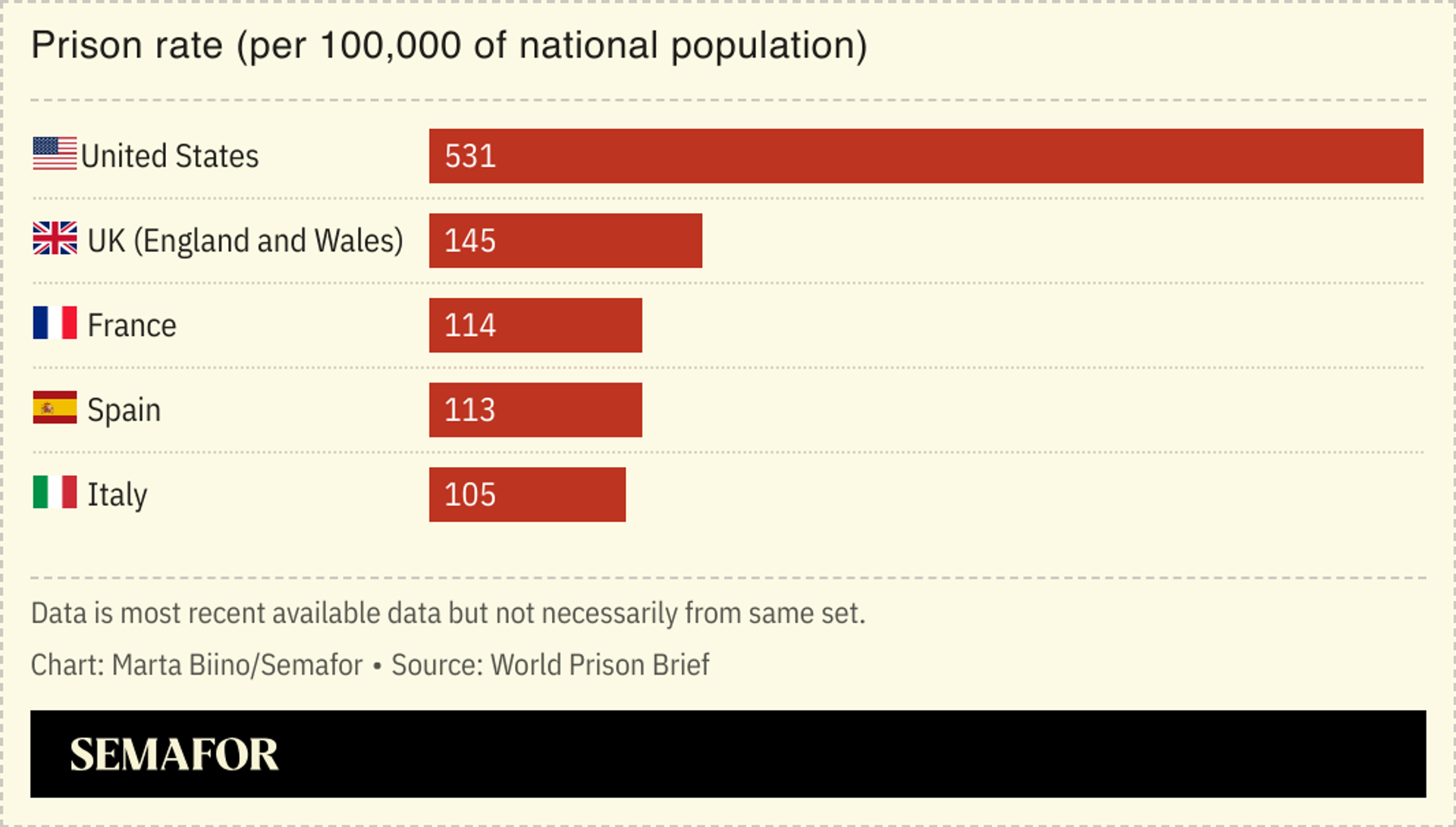The News
British Prime Minister Keir Starmer had a busy first week in office, including attending the NATO summit in Washington and announcing a series of domestic policy changes — such as scrapping the controversial Rwanda scheme for deporting migrants and lifting a de facto ban on onshore wind farms.
But one inherited crisis looks set to implode: Starmer, previously the most senior criminal prosecutor in England and Wales, said UK prisons are days from overflowing. Data released Friday showed there were only 708 places left in the male prison estate, prompting Starmer’s government to announce plans to temporarily reduce inmates’ time served, with some exceptions.
SIGNALS
Starmer’s honeymoon period may not last
The corridors of power in Britain are now suffused with the “sharp, invigorating reek of change,” the New Statesman’s political editor wrote. A Time columnist, meanwhile, said a “mission-driven“ Labour government, unscarred by scandal and internal divisions, could bring an end to the instability and short-termism that have plagued British politics in recent years. However, Starmer’s post-election honeymoon period is likely to be short-lived, the Evening Standard’s political editor warned. “[F]or a while, Labour will get away with murder… just because they’re not the Conservatives,” he wrote, but public scrutiny is coming.
Change requires more than slogans
Delivering on Labour’s election slogan of “change” will require Starmer to break down internal silos within government departments, a think tank expert argued in the Financial Times, adding that the prime minister’s missions as currently set are not as broad-reaching and collaborative as Labour presents them to be. Instead of rushing through a policy blitz in the first 100 days, Starmer should harness the “luxury of time” that Labour’s landslide win afforded him to thoughtfully implement change, a Bloomberg columnist wrote, arguing that: “The scorched economic and social earth left behind by the Conservative Party can’t be replanted in a single season, or even five.”
On prisons, radical reform may not be well received

England and Wales now have the highest per capita prison population in Western Europe, while recidivism has remained “stubbornly high,” the Financial Times reported. Starmer’s appointment of businessman and prison reform advocate James Timpson as prisons minister was praised by some as inspired. But Timpson’s radical instincts — he has previously said that a third of inmates don’t belong in prisons — will now face an “unforgiving” political environment, where senior prison service leaders “eat evanescent prison ministers for breakfast,” and the public will not accept mass release, a columnist argued in Prospect Magazine.

